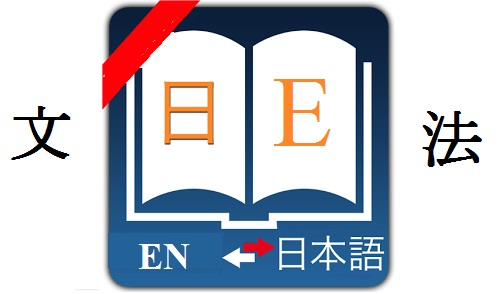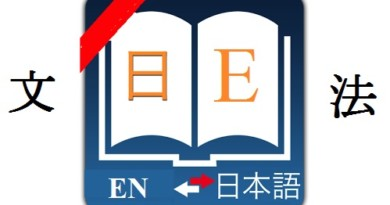Japanese さえ grammar sae

Let’s learn Japanese さえ grammar sae :
Contents
Japanese さえ grammar sae
JLPT level : N3
Formation :
N + さえ
Question word + さえ
Meaning : Express that an event/case that will occur for sure, but in fact, it does not occur.
Note : After the sentence’s subject, it is used in the form 「でさえ」. It can be replaced by「も」
Japanese さえ grammar sae
Example :
A「この本はめっちゃ難しい!タイトルさえわからないよ。」
B「やっぱり、哲学の本だから…」
A : “Kono hon ha meccha muzukashii! Taitoru sae wakaranai yo.”
B : “Yappari, tetsugaku no hon dakara…”
A : “This book is really difficult! I don’t even understand its title.”
B : “After all, it’s a philosophy book…”
この機械の種類さえ知らないよ。もちろん使い方なんて教えられないだろう。
Kono kikai no shurui sae shiranai yo. Mochiron tsukaikata nante oshierarenai darou.
I don’t even know the type of this machine. Of course I can’t teach you how to use it.
A「君は絵を書くことがうまいと言われたね。」
B「うまいどころか、鉛筆の正しい持ち方さえわからないよ。」
A : “Kimi ha e wo kaku koto ga umai to iwareta ne.”
B : “Umai dokoro ka, enpitsu no tadashii mochikata sae wakaranai yo.”
A : “It is said that you are good at drawing.”
B : “Far from being good at it. I don’t even know how to hold a pencil correctly.”
同僚と一緒にカラオケに行くどころか、交通費さえ足りないよ。
Douryou to issho ni karaoke ni iku dokoro ka, koutsuuhi sae tarinai yo.
Far from going to karaoke with my colleagues, I don’t even have enough traveling expense.
石田さんは日本人なのに、「山」という漢字さえ読めないなんて…
Ishida san ha nihonjin na noni, “yama” toiu kanji sae yomenai nante…
Mr. Ishida is Japanese but he can’t even read the kanji character “Yama”….
フランス語の論文どころか、発音さえよく身に付けません。
Furansu go no ronbun dokoro ka, hatsuon sae yoku mi ni tsuke masen.
Far from writing an essay in French, I can’t even learn the pronunciation well.
A「あの人は自分の名前さえ覚えられなくて、変な人じゃん。」
B「低能な人だろう。」
A : “Ano hito ha jibun no namae sae oboerare nakute, hen na hito jan.”
B : “Teinou na hito darou.”
A : “That person can’t even remember his name, what a strange person.”
B : “Maybe he is an incompetent person.”
Japanese さえ grammar sae
それは子供さえわかる話です。お前はわからないと言ったら、分かりたくないでしょう。
Sore ha kodomo sae wakaru hanashi desu. Omae ha wakaranai to ittara, wakari takunai deshou.
That is a story that even children can understand. If you say you don’t understand, it is because you don’t want to.
あんなくだらないやつさえ恋人がいます。
Anna kudadarai yatsu sae koibito ga imasu.
Even such a trashy guy has a lover.
田中さんはリュウト歌手のファンだと言ったのに、アイドルの生年月日さえ知らない。
Tanaka san ha ryuuto kashu no fan da to itta noni, aidoru no seinengappi sae shiranai.
Mr. Tanaka said that he was a fan of singer Ryuto, but he doesn’t even know his idol’s birthday.
父は料理がまずくて、ご飯を叩くことさえできない。
Chichi ha ryouri ga mazukute, gohan wo tataku koto sae dekinai.
My father is so bad at cooking that he can’t even cook rice.
息子は新聞を買ったが、目に出たニュースさえ読まなくて直接に真ん中のページをめくった。
Musuko ha shinpun wo katta ga, me ni deta nyu-su sae yomanakute chokusetsu ni mannaka no pe-ji wo mekutta.
My son bought a newspaper, but he directly turned over the middle page without even reading the news he saw.
あの人はやっぱり有名な人だ。姿勢さえきれいだ。
Ano hito hay yappari yuumei na hito da. Shisei sae kirei da.
As expected, she is a famous person. Even her posture is beautiful.
今月の給料がまだもらえないので、今飲み物さえ買えない。
Kongetsu no kyuuryou ga mada moraenai node, ima nomimono sae kaenai.
Because I haven’t got this month’s salary yet, I can’t even buy a drink.
叔父は私が生まれた前に亡くなったので、顔さえ知らない。
Sofu ha watashi ga umareta maeni nakunatta node, kao sae shiranai.
My uncle died before I was born, so I don’t even know his face.
Japanese さえ grammar sae
Usage 2 : さえ…たら/…ば
Nさえ…たら/ば
Vます(remove ます)したら/すれば
Vてさえ…たら/…ば
Question word …かさえ…たら/ば
Meaning : Describe the meaning “if only ~ then/ as long as…”
Japanese さえ grammar sae
Example :
この本さえ読めば論文が書けますよ。
Kono hon sae yomeba ronbun ga kake masu yo.
You can write an essay if you read this book.
天気さえ良ければ僕たちのプランは半分成功するということだよ。
Tenki sae yokereba boku tachi no puran ha hanbun seikou suru toiu koto da yo.
If the weather is nice, our plan will be half successful.
勤勉に勉強してさえすればこの試験でぜひ高い点を取れるよ。
Kinben ni benkyou shite sae sureba kono shiken de zehi takai ten wo toreru yo.
You can definitely get a high score in this exam as long as you study hard.
知ってさえいればこんな場合にも陥りませんでした。
Shitte sae ireba konna baai nimo ochiiri masen deshita.
If I had known it, I wouldn’t have fallen into this situation.
お金がたくさんあってすれば、夢を叶えるでしょう。
Okane ga takusan atte sureba, yume wo kanaeru deshou.
If you had a lot of money, you could make your dream come true.
A「今死にたくてたまらんね…」
B「そんなことまで言うな。生きてさえいれば何よりだ。」
A : “Ima shinitakute tamaran ne…”
B : “Sonna koto made iu na. Ikite sae ireba naniyori da.”
A : “I really want to die now…”
B : “Don’t say that. It is best to be alive.”
Japanese さえ grammar sae
雨さえ降らなければ、明日登山に行きます。
Ame sae furanakereba, ashita tozan ni ikimasu.
If it doesn’t rain, I will go climbing tomorrow.
君さえいれば僕は何でも要らぬ。
Kimi sae ireba boku ha nan demo iranu.
As long as I have you, I don’t need anything.
あの子は暇さえあれば、本を読んで考えています。
Ano ko ha hima sae areba, hon wo yonde kangae te imasu.
If she has time, she will read a book and think about it.
この問題さえ解決すれば、後は困難にならない。
Kono mondai sae kaiketsu sureba, ato ha konnan ni naranai.
As long as this problem is solved, everything left won’t be any trouble.
来週残業さえなければ、お前と一緒にどこでも行けますよ。
Raishuu zangyou sae nakereba, omae to isshoni dokodemo ikemasu yo.
If I don’t work overtime next week, I can go anywhere with you.
A「時間さえあれば、もっといい方法を出せますけど…」
B「じゃ、少しな時間をあげますよ。2時間ぐらいいかなあ。」
A : “Jikan sae areba, motto ii houhou wo dasemasu kedo…”
B : “Ja, sukoshi na jikan wo agemasu yo. Ni jikan gurai ii kanaa.”
A : “If I have time, I can come up with a better method…”
B : “I will give you a little bit more time. How about two hours?”
それさえなければ、私達は仕事を順調に進めます。
Sore sae nakereba, watashi tachi ha shigoto wo junchou ni susume masu.
As long as we don’t do that, we will work well.
Related structures :
でさえ desae
さえ…ば sae…ba
さえ…たら sae..tara
Ref : tuhoconline
above is Japanese さえ grammar sae. if you don’t understand the signs we used in fomation, you can find their meaning here : signs used in Japanese grammar structures.
You can search the structure you want by using the search tool on our website (using key : grammar + ‘structure name’ or you can find more Japanese grammar structures in the following category : Japanese grammar dictionary
